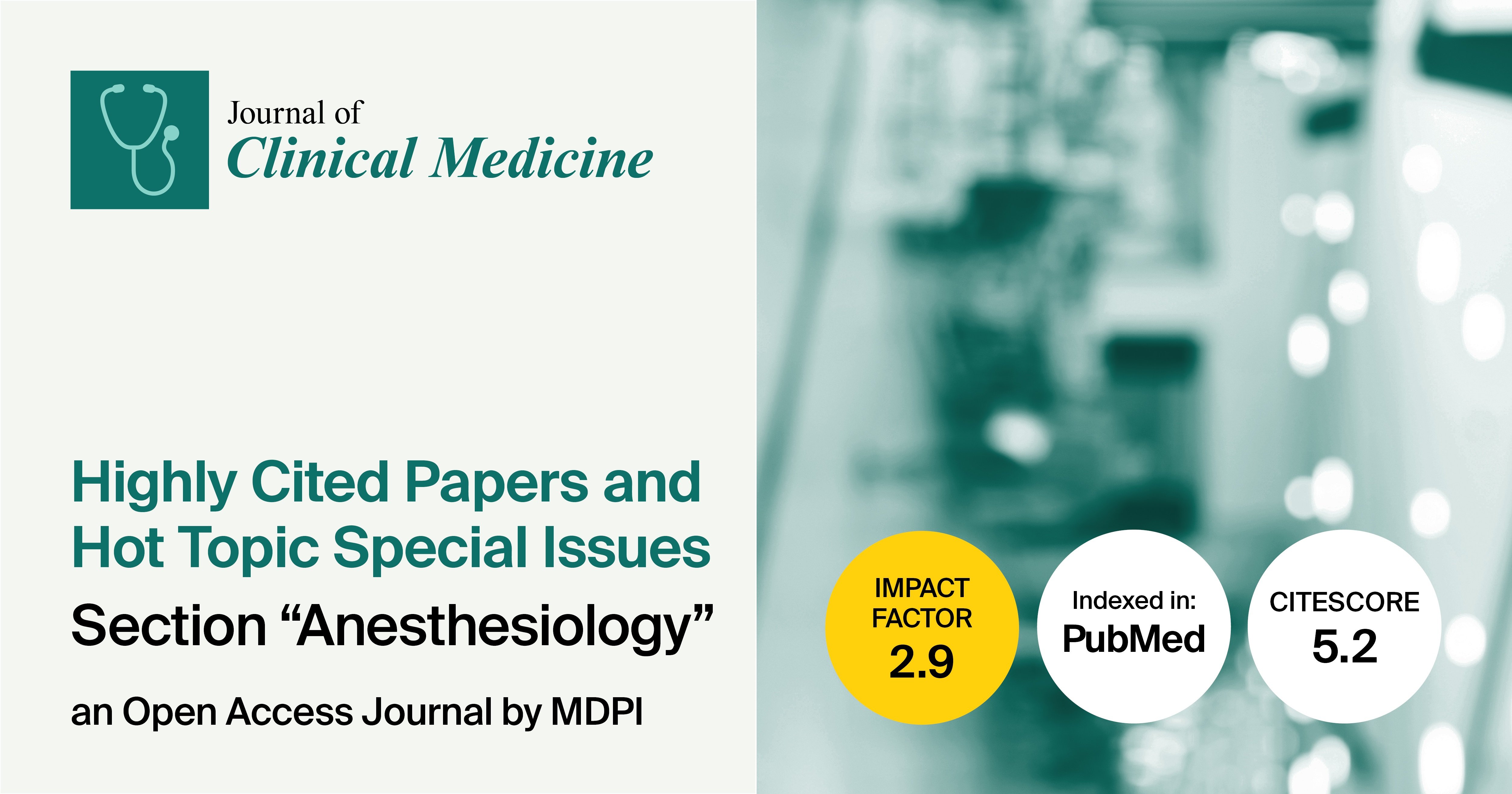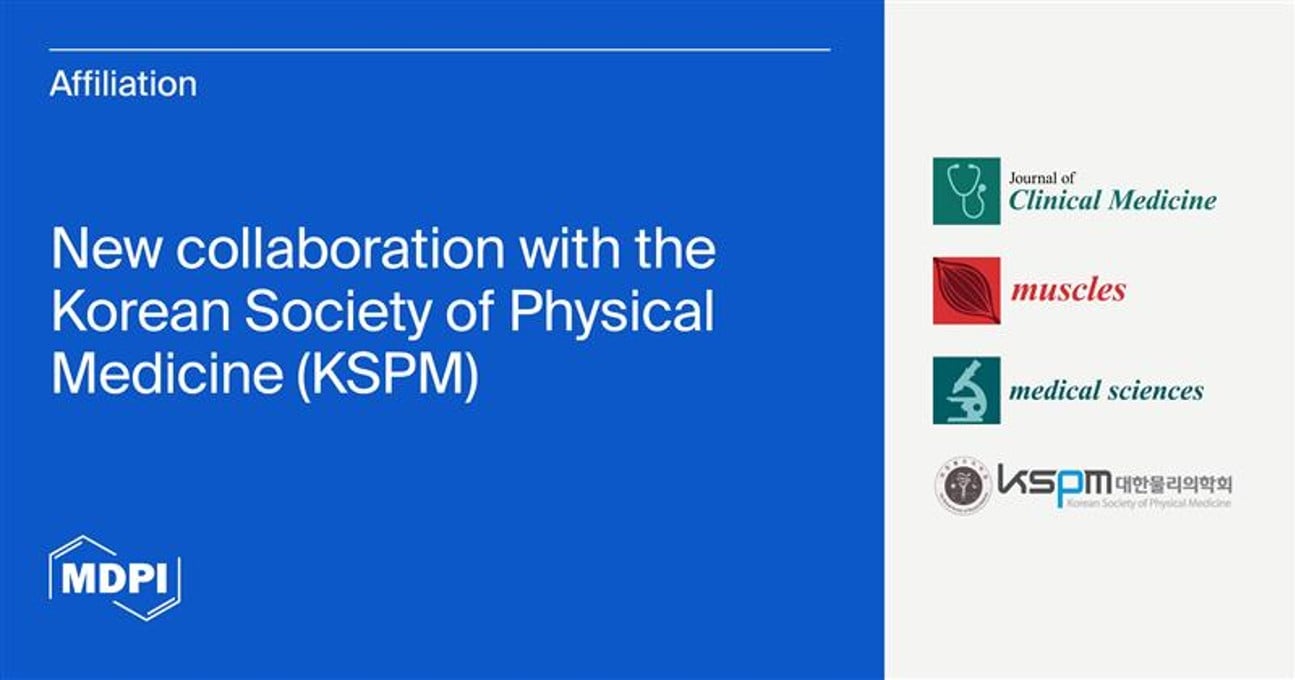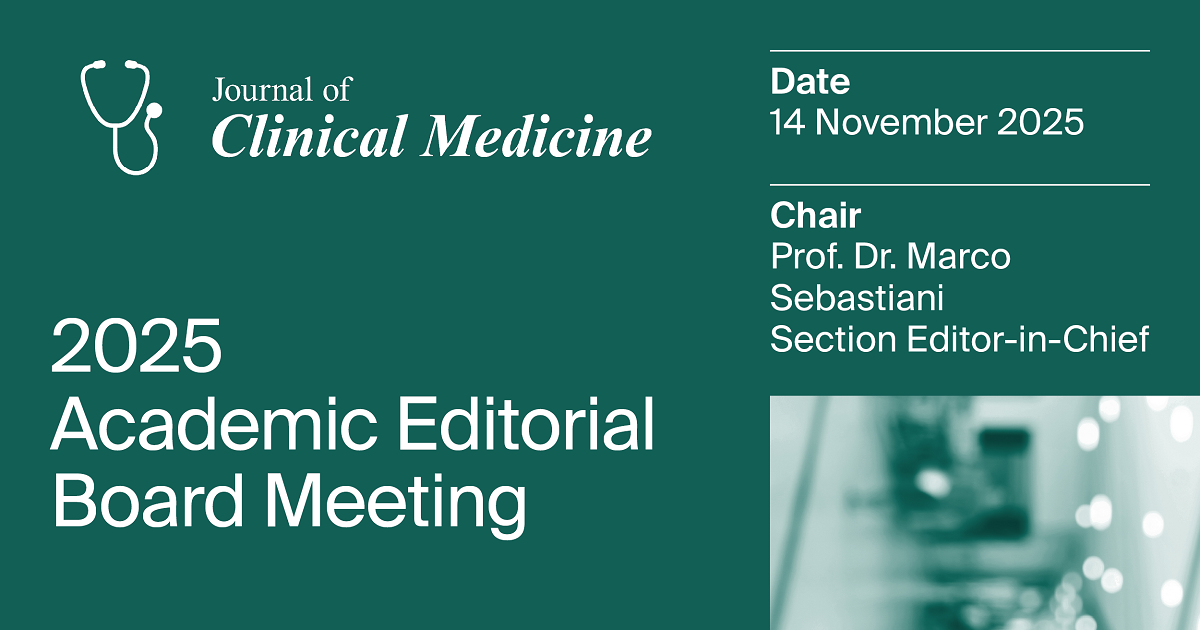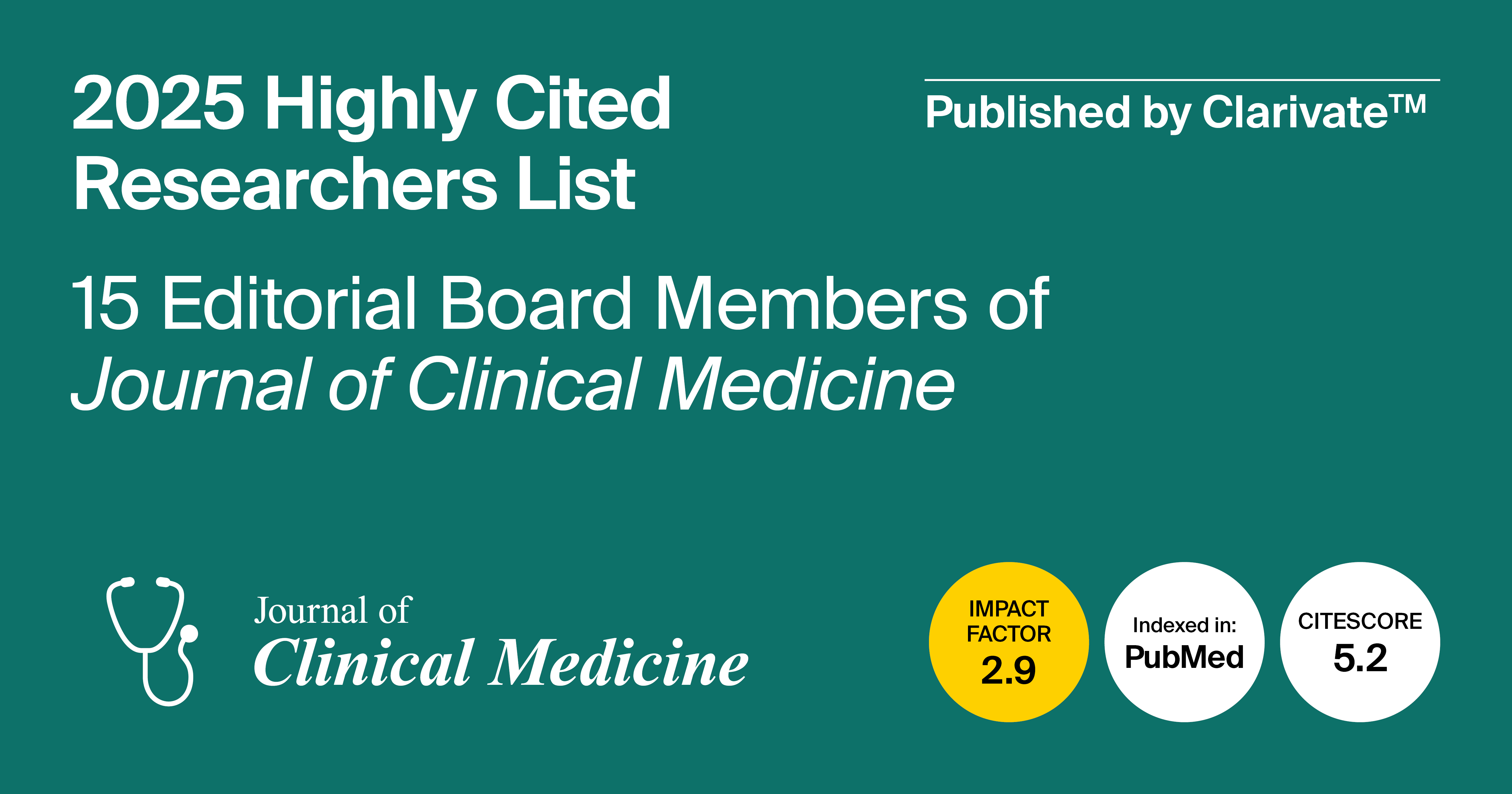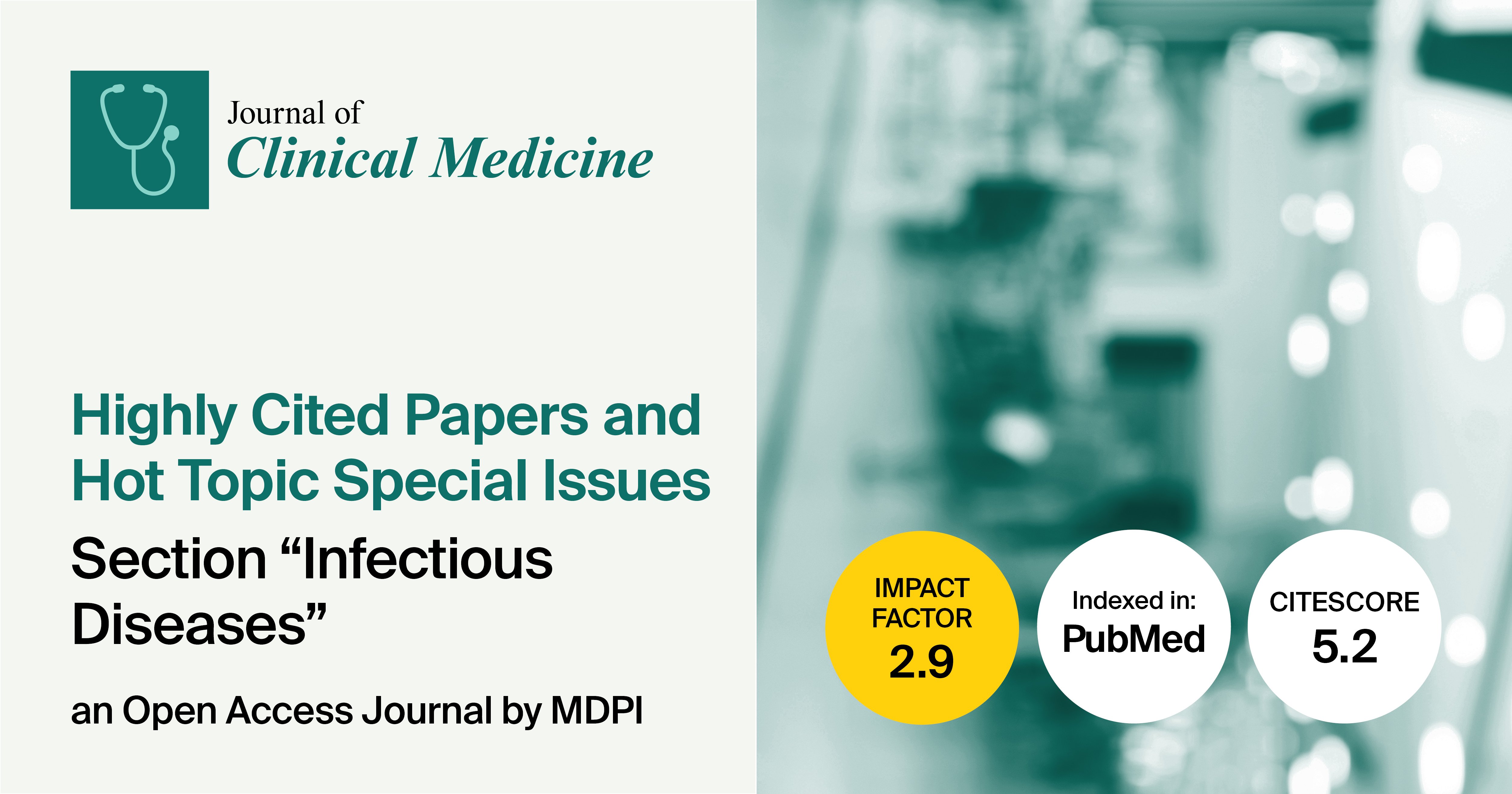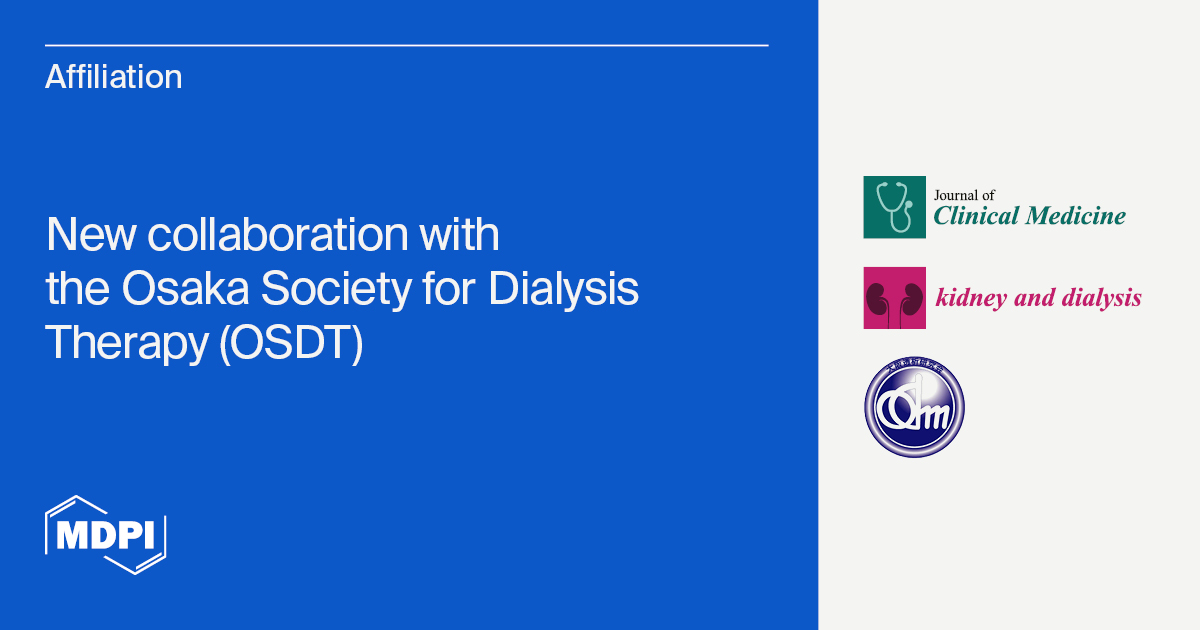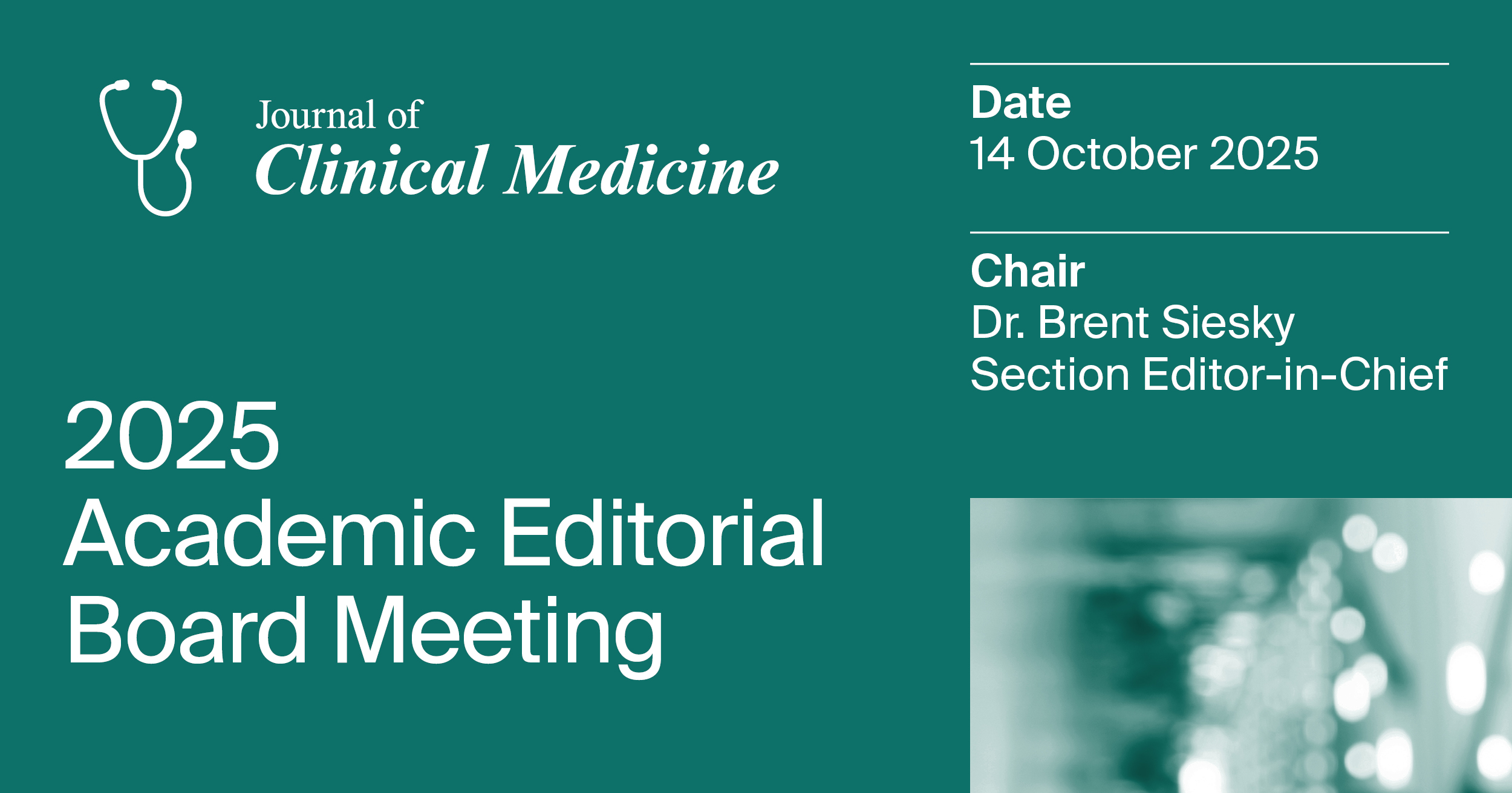- 2.9Impact Factor
- 5.2CiteScore
- 19 daysTime to First Decision
News & Conferences
Latest News & Announcements
Latest Conferences
Propose a Conference Collaboration
Promote and publicise your upcoming conference with MDPI.
All News & Conferences
News & Announcements
MDPI’s Newly Launched Journals in December 2025
9 January 2026
News & Announcements
Journal of Clinical Medicine | Highly Cited Papers and Hot Topic Special Issues in the “Anesthesiology” Section
6 January 2026
News & Announcements
Journal of Clinical Medicine | Collaboration Established with the Korean Society of Physical Medicine (KSPM)
29 December 2025
News & Announcements
Journal of Clinical Medicine | 2025 Editorial Board Meeting of the “Immunology & Rheumatology” Section Held on 14 November 2025
25 December 2025
News & Announcements
Meet Us at the ESCMID Global 2026, 17–21 April 2026, Munich, Germany
19 December 2025
News & Announcements
Journal of Clinical Medicine Editorial Board Members Featured in the 2025 Highly Cited Researchers List Published by Clarivate
19 December 2025
News & Announcements
Meet Us at The World Congress of Nephrology 2026, 28–31 March 2026, Yokohama, Japan
18 December 2025
News & Announcements
Journal of Clinical Medicine | Highly Cited Papers and Hot Topic Special Issues in the “Infectious Diseases” Section
12 December 2025
News & Announcements
Article Layout and Template Revised for Future Volumes
11 December 2025
News & Announcements
Journal of Clinical Medicine | Collaboration Established with the Osaka Society for Dialysis Therapy (OSDT)
9 December 2025
News & Announcements
Journal of Clinical Medicine | 2025 Editorial Board Meeting of the Section “Ophthalmology” Held on 14 October 2025
3 December 2025
of 45



